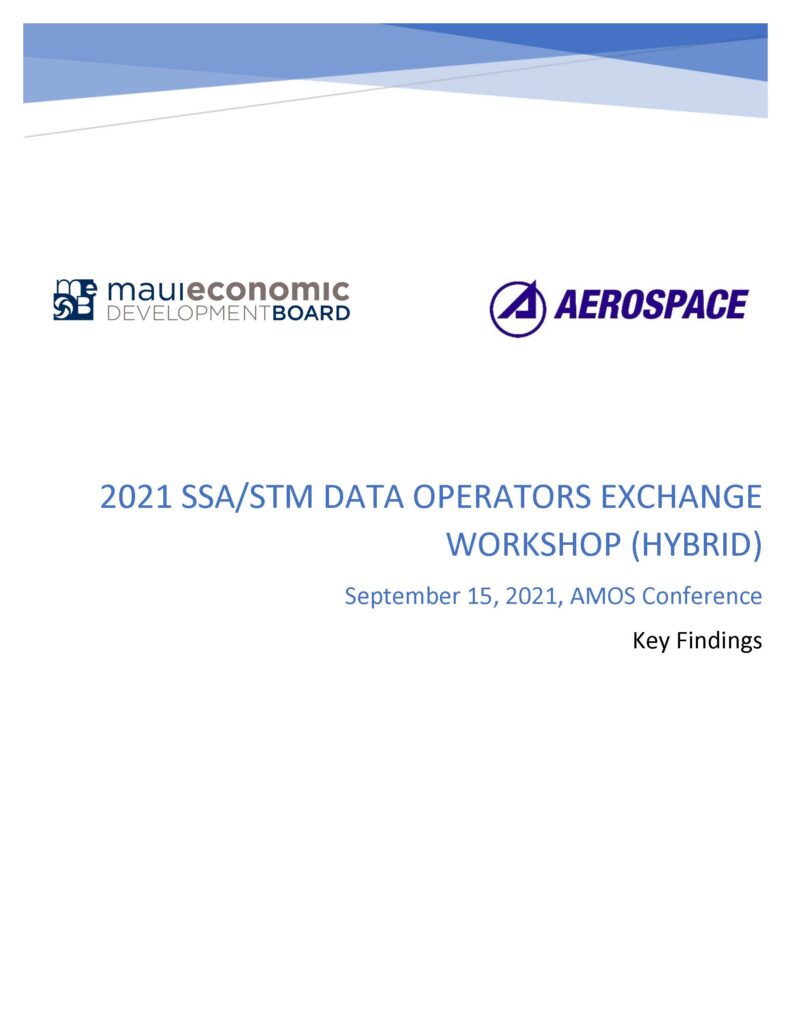
The rapid emergence of large Low Earth Orbit constellations (LLC) over the last two years increases the urgency to make progress in the top priority areas the workshop identified in previous years for improving international SSA/STM operations. This is an issue critical to the global community and the long-term sustainability of space. The increasing congestion of space due to on-orbit activities and the ever-growing amount of debris pose a growing risk of collisions in space that endanger the satellites that enable modern infrastructure, the quality of life around the globe, scientific discovery, and nations’ security. Acknowledging this issue, a hybrid (in-person and virtual) international workshop (the 6th such event) consisting of governmental space subject matter experts and experts from non-profits was held in September 2021 to identify new priority areas that need to be addressed by the international community to promote the responsible use of space and to mitigate these risks.
The workshop attendees focused their discussion on the opportunities and growing challenges associated with autonomous collision avoidance systems rapidly being incorporated into emerging LLC operations. While there was consensus that space safety should take priority over proprietary information concerns, the workshop identified several concerns with autonomous collision avoidance systems and their scalability. Different LLC operators use different algorithms, concepts of operation, accuracy levels, decision calculus’s and timelines, and make different business decisions in relation to their respective autonomous collision avoidance systems. This presents several problems if there is a risk of collision between satellites being guided by different autonomous collision avoidance systems. For example, who moves, or who moves first? Without some type of coordination or transparency into how each autonomous collision avoidance systems works, the autonomous collision avoidance systems may not be helpful. The workshop identified the need to redefine “transparency,” expand what information needs to be shared in light of the use of autonomous collision avoidance systems, and even the potential for minimum standards for maneuverability.
The organizers stand ready to support the international community to progress on SSA data sharing, questions surrounding autonomous collision avoidance systems, and establishment of STM frameworks along with the other recommendations from this workshop. In parallel we will build upon these findings and engage with the wider space community at Space Symposium 2022.
